
It wasn’t long before there were escapees from farms in Sussex, Devon, Hampshire and Norfolk, and by the 1930s the coypu had begun to breed rapidly in the wild. An adult female could carry at least two litters each year and, with up to 13 young in each litter, their numbers simply rocketed.
For some reason, it appears that the coypu reproduced far better in the wild than they ever did in the captivity and protection of the nutria farms.
These giant vegetarians had no natural enemies in the wild and, at first, were treated as little more than a curiosity. As they ate their way voraciously through the vegetation that clogged the dykes and drains in vast areas of the fens and broads, they were, for a time, considered to be quite an asset.
Several species of waterfowl benefited from the improved habitat, as did the Marshman and pleasure boaters who could now navigate areas that had been impenetrable since World War I, when a shortage of manpower had seen the dykes become neglected and overgrown.
Lucrative market
It was during World War II that fresh interest in nutria was instigated, mainly due to the rationing of clothes. Subsequently, a fur dealer offered 30 shillings for each coypu pelt and there were soon few Marshman who were not enthusiastically cashing in on this lucrative market.
هذه القصة مأخوذة من طبعة July 29, 2020 من Shooting Times & Country.
ابدأ النسخة التجريبية المجانية من Magzter GOLD لمدة 7 أيام للوصول إلى آلاف القصص المتميزة المنسقة وأكثر من 9,000 مجلة وصحيفة.
بالفعل مشترك ? تسجيل الدخول
هذه القصة مأخوذة من طبعة July 29, 2020 من Shooting Times & Country.
ابدأ النسخة التجريبية المجانية من Magzter GOLD لمدة 7 أيام للوصول إلى آلاف القصص المتميزة المنسقة وأكثر من 9,000 مجلة وصحيفة.
بالفعل مشترك? تسجيل الدخول
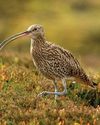
United we stand
Following United Utilities' decision to end grouse shooting on its land, Lindsay Waddell asks what will happen if we ignore our vital moors

Serious matters
An old gamebook prompts a contemplation on punt-gunning
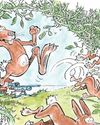
They're not always as easy as they seem
While coneys of the furry variety don't pose a problem for Blue Zulu, he's left frustrated once again by bolting bunnies of the clay sort
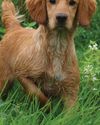
Debutant gundogs
There's lots to think about when it comes to making the decision about when to introduce your dog to shooting
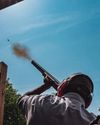
When the going gets rough
Al Gabriel returns to the West London Shooting School to brush up on his rough shooting technique

The Field Guide To British Deer - BDS 60th Anniversary Edition
In this excerpt from the 60th anniversary edition of the BDS's Field Guide To British Deer, Charles Smith-Jones considers the noise they make
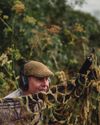
A step too far?
Simon Garnham wonders whether a new dog, a new gun and two different fields in need of protection might have been asking too much for one afternoon's work
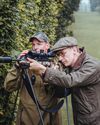
Two bucks before breakfast
A journey from old South London to rural Hertfordshire to stalk muntjac suggests that the two aren't as far detached as they might seem
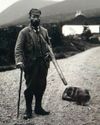
Stalking Diary
Stalkers can be a sentimental bunch, and they often carry a huge attachment to their hill

Gamekeeper
Alan Edwards believes unique, private experiences can help keepers become more competent and passionate custodians of the countryside